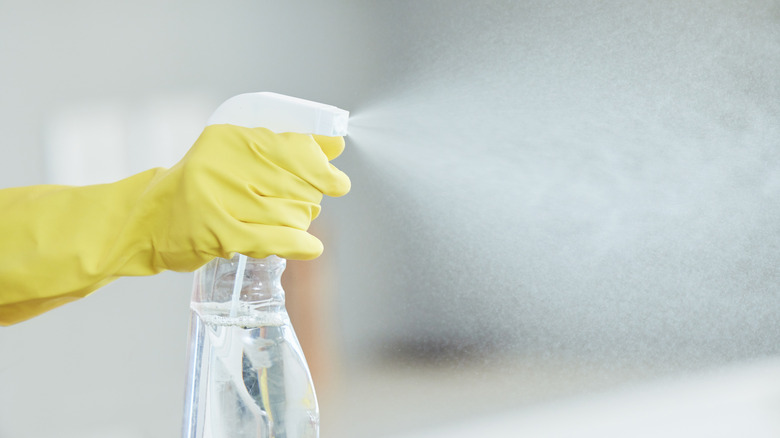We might earn a commission when you buy through our links.
Even though they’re tiny, ants can swiftly turn into a significant issue when they manage to get indoors. We all understand that exposed food attracts these pests, yet excessive moisture in the bathroom, cracks beneath entrance doors, and contaminated indoor plants can also be entry points for them.
factors that facilitate ants entering your house
Beyond being merely bothersome, ants can lead to significant problems such as tainted food and electrical malfunctions. These insects have an appetite for nearly everything—from sugar in your pantry to soap in your bathroom and even the wooden supports keeping your roof intact. While spotting a trail of ants marching over your counter surfaces often indicates their presence, keep an eye out for additional clues like soil mounds or colonies near your yard and deck area, sawdust beneath your windowsills, or shed insect wings beside your skirting boards. You might purchase various ant pesticides from stores like Walmart or Home Depot; however, using citronella oil serves as a safer alternative since its lemony aroma acts as a deterrent against household ant invasions.
If your search has led you here, then perhaps you’re searching for
a safe method to eliminate ants without using chemicals
Instead of opting for a chemical insecticide, reach for a bottle of essential oil such as the best-selling option.
HIQILI 100% Pure and Unadulterated Natural Citronella Oil
From Amazon. Derived from dried grasses, citronella oil is a nontoxic bio-chemical that numerous studies have indicated can effectively repel and eliminate different species of ants. When compared to store-bought ant baits, citronella offers a similarly potent yet budget-friendly alternative.
Read more:
12 Innovative Uses for Dishwasher Tablets Beyond the Kitchen
Why It Works

There is a wide range of
Essential oils you can employ to organically keep ants out of your kitchen cabinets
. What is it about citronella that makes it stand out as an excellent choice? A study published reveals this information.
The Murcia Institute for Agricultural and Environmental Research and Development
, the fresh and citrus-like aroma of citronella oil, often described as having woody and lemon notes, proved extremely unappealing to ants when tested for non-toxic methods to prevent their destruction of farming machinery. However, this substance contains more than just an appealing fragrance. An additional investigation detailed in a different study featured in the
Journal of Entomological Science
It turns out that even though citronella oil isn’t harmful to humans, it was the sole essential oil among those tested that showed complete toxicity towards ants. Since 1948, the Environmental Protection Agency (EPA) has regulated citronella products and acknowledges its effectiveness as a feeding deterrent, which stops ants from recognizing and eating food sources found in kitchens or wooden structures.
Should you seek a more secure method to eliminate annoying insects, you might find it surprising that commercially available ant baits aren’t inherently poisonous to people or pets. Typically containing minor amounts of boric acid, consuming a tiny quantity of this ant poison could result in mild gastrointestinal distress yet is not expected to induce severe damage. Conversely, citronella poses such minimal threat to humans, animals, and the ecosystem that the Environmental Protection Agency has mostly waived it from being classified as a pesticide. This allows for easier distribution and use across various purposes—including ridding your dwelling of ants—due to its negligible risks.
How To Use It

There are many
methods for eliminating ants
Using citronella oil typically involves applying the undiluted form directly within a controlled setting as seen in many studies. While you might opt for this method, research conducted at the Murcia Institute of Agricultural and Environmental Research and Development showed that the oil did not damage synthetic substances such as plastics. Despite these findings, professionals advise dilution prior to use. Regardless of how you choose to apply citronella essential oil—whether it’s onto wooden flooring, granite countertops, or another surface—it’s crucial to perform a spot test initially to ensure it won’t lead to staining. Additionally, avoid direct contact between undiluted essential oils and your skin since they may induce redness and irritations.
Since using pure citronella might not be feasible or budget-friendly for tackling pests in a typical home, an alternative option is to make a citronella spray. Simply fill a spray bottle with it.
Teyssor BPA-FreeFine Mist Spray Bottles
From Amazon, mix two ounces of water with 60 to 120 drops of citronella oil. Thoroughly drench the affected area, repeating as needed until all the ants have either moved away or met their end.
If using a spray isn’t feasible and your aim is to prevent ants from entering your home before they become a significant problem, you might consider opting for a diffuser similar to the top-selling option.
ASAKUKI 500ml Aromatic Oil Diffuser
From Amazon, after adding water to your diffuser, include several drops of citronella oil. Additionally, you may incorporate other essential oils known for their ant-repelling properties, such as cinnamon, to generate an agreeable aroma in areas like porches or patios where ants tend to gather.
Liked this article? Sign up for expert home tips, DIY guides, and design inspiration from our newsletter.
House Digest newsletter
!
Read the
Original Article from House Digest
.


